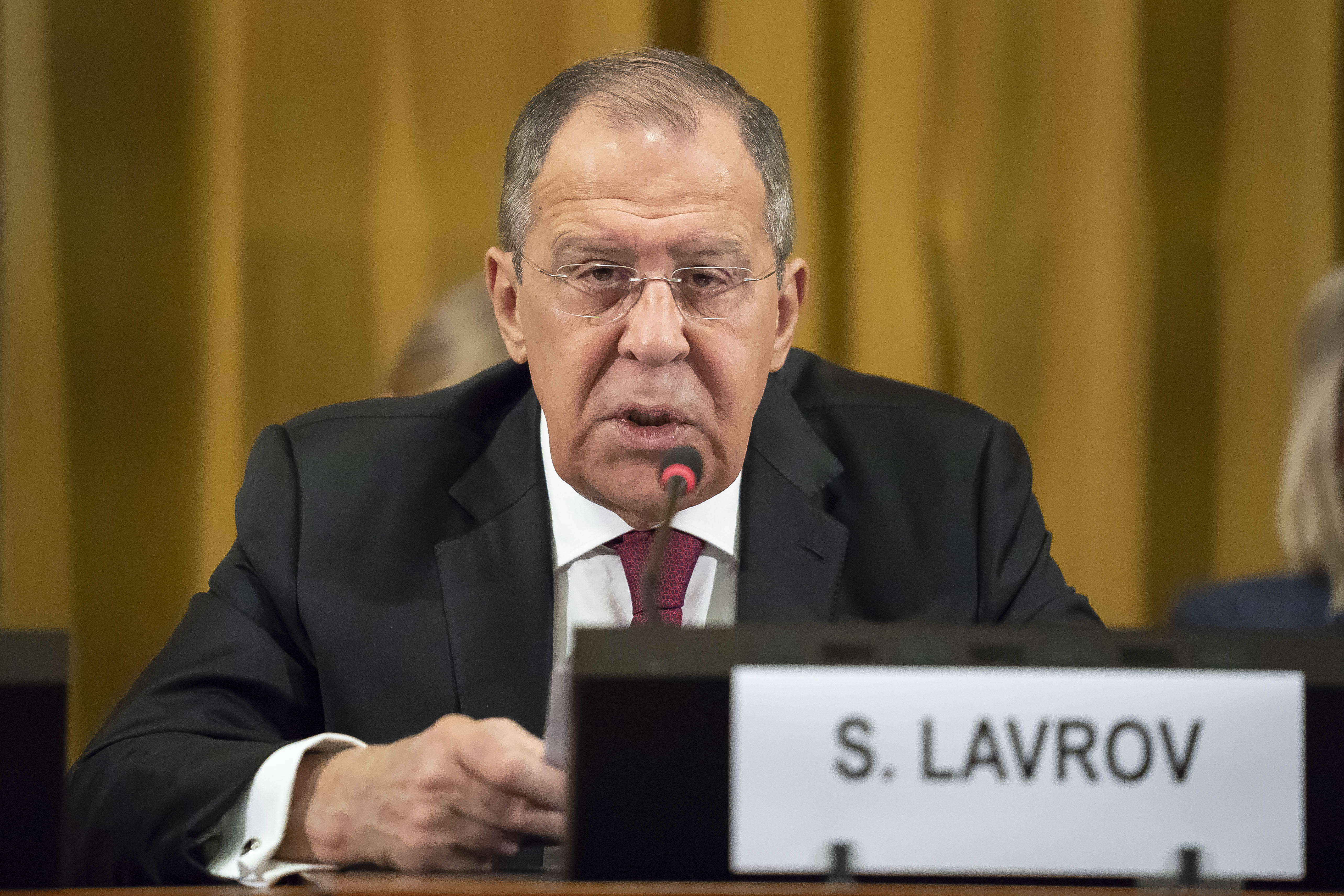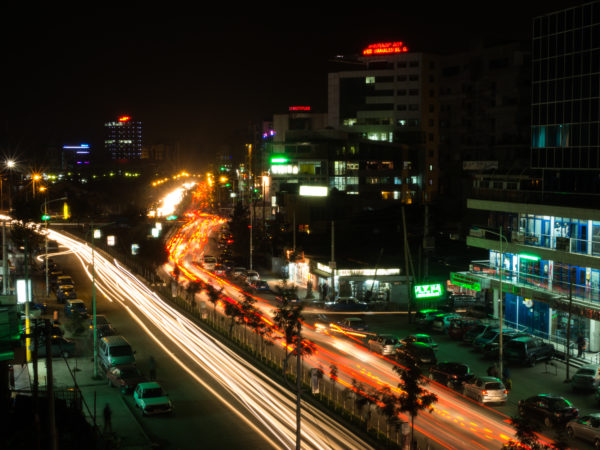News
South Africa’s Fawning at the Feet of the Russians will Carry High Costs
Just two of South Africa’s four corvettes have been to sea in the last two years, each only once, and none of its three submarines has even achieved that feat. Now that the pretence of neutrality in the Russian conflict with Ukraine, which is maintained with increasingly surreal public proclamations believed only by a handful of rogue states, has ended, South Africa will foot the bill in lost relationships with the countries best placed to help with growth and development.

Director, The Brenthurst Foundation

Research Director, The Brenthurst Foundation

South Africa’s Ministry of Defence and Military Veterans has issued a statement in defence of the upcoming exercise with the Russian and Chinese navies.
The minister, Thandi Modise, is said in this respect to be “confident that Exercise Mosi 2 will benefit all three participating nations” and “benefit all countries involved through Interoperability of the naval systems [sic], joint disaster systems management enhancement, maritime cooperation and anti-piracy exercises”.
The press release added: “In addition, Exercise Mosi II will serve as a platform for the three nations to share operational skills, expertise and experience.”
This is despite the fact, according to most recent information, that just two of South Africa’s four corvettes have been to sea in the last two years, each only once, and that none of its three submarines has even achieved that feat.
The statement goes on to get a little defensive, even tetchy, perhaps, because the public response to the friends Pretoria prefer to keep has been overwhelmingly negative — a mixture of disbelief and anger.
“Contrary to the assertions by our critics, South Africa is not abandoning its neutral position on the Russian-Ukraine conflict,” it reads. “We remain firm in our view that multilateralism and dialogue are keys to unlock sustainable international peace. We continue to urge both parties to engage in dialogue as a solution to the current conflict.”
Speaking after a meeting with Russian Foreign Minister Sergey Lavrov — these days an international pariah — International Relations Minister Naledi Pandor said: “All countries conduct military exercises with friends worldwide. It’s the natural course of relations.”
But to prove her fealty to Lavrov, Pandor clarified that it was no longer South Africa’s position that Russia should withdraw from Ukraine.
The truth is that key people in the defence ministry have been pushing for a BRICS naval exercise for years. India largely refused to participate and Brazil was lukewarm, sending a single observer.
Flirting with pariahs
This is not the first time that South Africa has flirted with pariahs. In the past, Iran attempted to hijack the Indian Ocean Naval Symposium and South Africa was one of the few willing to go along with this. None of this can remotely be in line with the values of human rights, compromise and seeking peace, since Iran readily states its earnest intention to wipe Israel from the map.
The docking of the Russian arms transport vessel Lady R in Simon’s Town last month and the flow of ammunition between South Africa and Russia also make nonsense of this statement. How can any of these actions — from routinely abstaining on principles of international law in the UN, dealing in ammunition with Russia, and now exercising with Moscow that has broken every imaginable legal and moral nicety in invading Ukraine — possibly be contemplated as actions of neutrality?
The assumption in Pretoria, however, seems to be that this is a cost-free strategy. Keep your ideological purity by snuggling up to the unspeakable Lavrov and then exercise what’s left of your navy, and the West won’t mind. This sentiment has been encouraged by the West rationalising that South Africa was “one of us” really, and if it strayed, this bellicosity was only to keep the radical left at bay.
The West has been in a state of denial for years, apparently believing that SA was a friend when, really, it was captured by the Russians and Chinese all along.
The problem now is threefold.
First, the cat is out of the bag. The presumption that the West is spineless may not endure in the circumstances. That’s exactly the same mistake that Russian President Vladimir Putin made.
Aid relationships and trade preferences, including the renewal of the African Growth and Opportunity Act in 2025, could suffer, particularly if the US Congress takes notice of South Africa’s friendships. The same applies to its military relations. Nearly all of South Africa’s military equipment is sourced from the West. Will South Africa continue to obtain end-user certificates, for instance, for critical submarine and frigate combat suite spares in future?
Second, not only is the bulk of South Africa’s investment and much of its trade with the West, but these are the countries with which most South Africans identify. In response to the question: “If you were to leave South Africa, which country would you choose to go to?” a recent survey of attitudes by The Brenthurst Foundation found that more than half of South Africans preferred to go to the US, Europe, Australia or New Zealand, while just 4.1% favoured Russia and 3.6% China.

Third, Pretoria not only appears to assume that there will be a limp-wristed Western response, but that somehow its strategy will bolster South Africa’s international standing. This is at best far-fetched.
It would, for instance, have to deliver on its promise of mediation. While Russia might like to have someone mediate at this moment so that it can legitimate its own illegitimacy and stay with reduced risk in Ukraine, the only mediation in which the Ukrainians are seemingly (and justifiably) interested involves Russia vacating their territory.
And it’s hardly that South Africa is an honest broker, which makes President Cyril Ramaphosa’s reputed involvement in an embryonic African peace initiative a non-starter, just as it would any other African leader who has flirted with the Russian cause, including the likes of Yoweri Museveni. It’s akin to the nonsensical notion that South Africa can broker peace in Israel based on its supposed neutrality and experience with successful mediation.
Finally, if it seems that there is a web of technological and financial relationships that enable Russia’s war machine, there is the spectre of sanctions aimed at the individuals — and the financial institutions and businesses — involved, including those in government.
Many would now, in the wake of the second-half performance of the ANC over the last 30 years, question this claim of success, as they would Pretoria’s neutrality or its competency.
The Ministry of Defence and Military Veterans’ statement on the upcoming February naval exercise notes that not only does South Africa enjoy “diplomatic relations with all member states of BRICS (Brazil, Russia and China) [sic, it fails to mention India in the statement, sorry] at a bilateral level, in addition to the multilateral levels [sic again]”, but that: “We also enjoy defence diplomatic relations with several countries across all the continents of the world since we have become an integral part of the community of nations and no longer a pariah state.”
That may be about to change — the pariah bit, that is.
This article originally appeared on the Daily Maverick
Photo: UN Geneva

